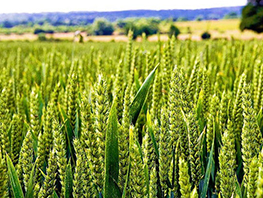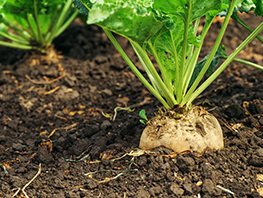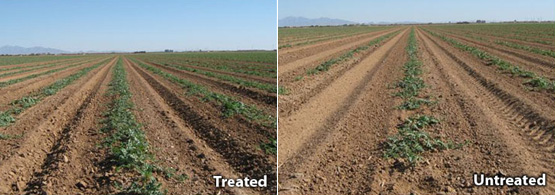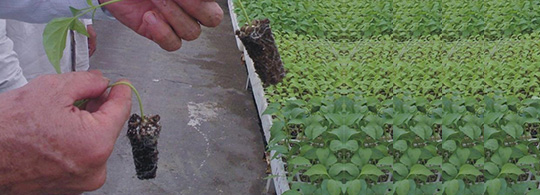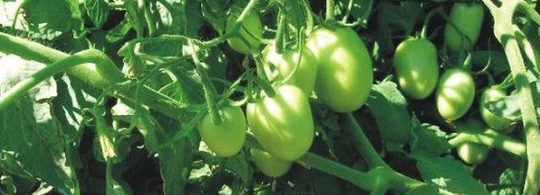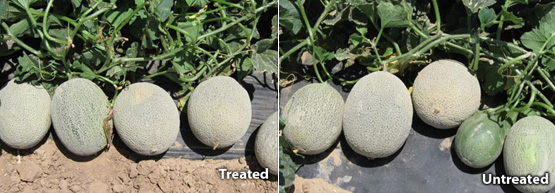FERTICELL BACILLUS AMYLOLIQUEFACIENS
BIO Fungicide
Beneficial bacteria for plants growth, Fungicide for disease biocontrol
Bacillus amyloliquefaciens (BA) is beneficial bacteria for plants used in agriculture. It works as biocontrol agent against plant disease, produce compounds that inhibit the growth of plant pathogens bacteria and fungi, this can help to reduce the need for chemical pesticides and increase crop yields. Moreover, it is also known to produce plant growth-promoting compounds, such as hormones, enzymes, and vitamins. These compounds can produce enzymes that break down complex carbohydrates, help to boost the development of crops and lead to increased yields. Finally, BA has been found to be an effective agent in bio protection against abiotic stress such as drought, salinity, and heavy metal toxicity.
Bacillus amyloliquefaciens fungicide.
Antagonistic Activity
Bacillus amyloliquefaciens fungicide inhibits some pathogenic fungal diseases:
F1, Verticillium dahliae;
F2, Fusarium solani;
F3, Fusarium oxysporum f. sp. cucumerinum;
F4, Exserohilum turcicum;
F5, Fusarium oxysporum f. sp. melonis;
F6, Alternaria dauci;
F7, Sclerotinia sclerotiorum;
B1, Ralstonia solanacearum
Antagonistic Activity of Bacillus amyloliquefaciens
Mode of Action
Antibiosis: Bacillus amyloliquefaciens fungicide produces a variety of antibacterial substance that inhibit the growth of soil pathogens. These include enzymes, antibiotics, and other compounds that can disrupt the cell walls or metabolism of other bacteria and fungi.
Competition: Colonizing plant roots and outcompete other microorganisms for resources such as nutrients and space, which can help to suppress pathogens.
Induced systemic resistance: Trigger a plant’s own defense mechanisms, leading to an overall increase in resistance to pathogens and other environmental stressors.
Plant growth promotion: Enhance plant growth and health by increasing nutrient availability, promoting root development, and stimulating the production of plant hormones.
Biofertilization:
Solubilize phosphates and potassium, which can improve the plant’s nutrient uptake.
Siderophore production:
Produce siderophores, which are iron-scavenging compounds, that help the plant to acquire iron from the soil, this improve the plant’s growth.
How to use bacillus amyloliquefaciens powder
Soil drench: Apply 1-3 kg per acre, mixed with water and applied to the soil as a drench or broadcast. This can help to establish the bacteria in the soil and protect plants from pathogens. Reapply at 28 days interval during whole season.
Foliar spray: Apply 2-3 gram per liter of water and spray to the leaves of plants. This can help to protect plants from pathogens and promote growth. Reapply at 7-10 days interval.
Irrigation: Add 2-3 gram per liter of water and applied through irrigation systems. This can help to establish the bacteria in the soil and protect plants from pathogens. Reapply at 15-30 days interval.
Compost: Add 1 kg per ton of compost piles or vermicomposting systems to promote the growth of beneficial bacteria and suppress pathogens.
Seed treatment: Apply 100 gram per 100 kgs seed, mixed with seed coating material or slurry to treat seeds before planting. This can help to protect seedlings from pathogens and promote early growth.
It is important to note that the optimal application method will depend on the crop, the stage of growth, and the specific pathogen or problem being addressed. It is recommended to use bacillus amyloliquefaciens powder together with other beneficial bacteria for plants for soil microbial ecosystem manipulation.
Product Features And Benefits
Features
Beneficts
Biological control various soil-borne plant pathogens such as Altemaria solani, Botrytis Cinerea, Fusarium oxysporum, Phytophthora infestans and others.
Enhance stress resistance and prevent senescence in crops by increasing photosynthetic efficiency.
Improve soil fertility by activating the potential nutrient phosphorus and potassium.
Promoting plant root growth and balancing rhizosphere micro ecology.
Degrade the pesticide residue in the soil and reduce nitrite accumulation.
Promote hormones such as protease and amylases enzyme which can effectively increase plant resistance and prevent leaf fungus diseases, such as powdery mildew.









